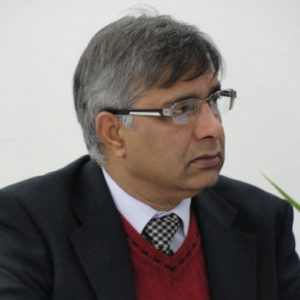LAHORE, Pakistan: The Centre for Social Justice (CJS) on Tuesday organized a stakeholders’ meeting in Lahore with members of civil society, academia, media and local minority community representatives on the issue of forced conversions in the Country.
The meeting sought to build consensus within the civil society and deliberate on the means of future engagement with relevant government bodies, particularly the Parliamentary Committee on Forced Conversions formed by the Chairman Senate Sadiq Sanjrani and the Speaker National Assembly Asad Qaiser on November 21, 2019.
The lead discussants included Mr. Saroop Ijaz (Advocate, Lahore High Court), Mr. Najam U Din (former HRCP leader), Mr. Kalyan Singh (educationist & minority rights activist) and Ms. Kulsoom Sadiq (activist).

Mr. Peter Jacob, the Executive Director CSJ, speaking on how to combat the menace of forced faith conversions in the future said that protecting the fundamental rights of the victim (often, minority women) must include measures to protect their physical and psychological autonomy, legal representation, compensation, rehabilitation and restitution.
Peter Jacob also presented a working paper outlining a working definition of forced conversion in the context at hand, magnitude and recommendations to repair the situation. He briefed the attendees on the data collected by the CSJ, detailing approximately 160 cases of forced conversions (2013-2019), forced marriages and related crimes involving minority women and girls. The working paper also documented 16 cases where the formerly abducted and converted girls had sought judicial relief from the Hyderabad bench of Sindh High Court (SHC). Analysis of these cases has revealed the range of legal loopholes, procedural irregularities and socio-cultural factors contributing to impunity available to the perpetrators. These must be taken into consideration when the Parliamentary Committee and the government begin formulating laws and policies against forced conversion in the country.
Also speaking on the occasion, Mr. Saroop Ijaz said: “The conference solicited feedback from over 50 civil society workers, rights activists and community leaders. These consultative sessions will entail sending actionable proposals and recommendations for the Parliamentary Committee in order to facilitate and support the work of the Committee in the future.”
Najam U Din said that while the government of Pakistan was making strides in promoting a soft image of Pakistan by opening Kartarpur Corridor and promoting religious tourism, criminal elements who have long abused religion to cover up their crimes are engaged in forced conversions which now must be looked into by the law enforcing bodies and the justice system. Since the victims do not have a proper law to address forced conversion, the perpetrators get away with the crime.
In the meeting, a resolution was also passed, urging the Sindh government to investigate the case of Huma, a 14-year-old Christian girl who was abducted and converted last week in Karachi. The provincial government was also stressed upon to probe the case of Mehek Ram Lal who was transported to Deherki to record her statement alleging that she had converted of free will.
The speakers urged the government to properly investigate the role of Mian Mithu and why Hindu girls flee to Bharchundi Shareef so frequently.
During the meeting, a documentary on the state of religious freedom in Pakistan, prepared by the Centre for Social Justice, was also screened to apprise the stakeholders of the contextual dimensions of the issue of forced faith conversions.
The participants of the meeting resolved that the stakeholders in civil society under the aegis of the CSJ will continue to engage in, facilitate, and support the work of the Parliamentary Committee vis-a-vis law and policy-making on the issue of protection of minorities including developing safeguards against forced conversions and forced marriages of minority girls and women.




